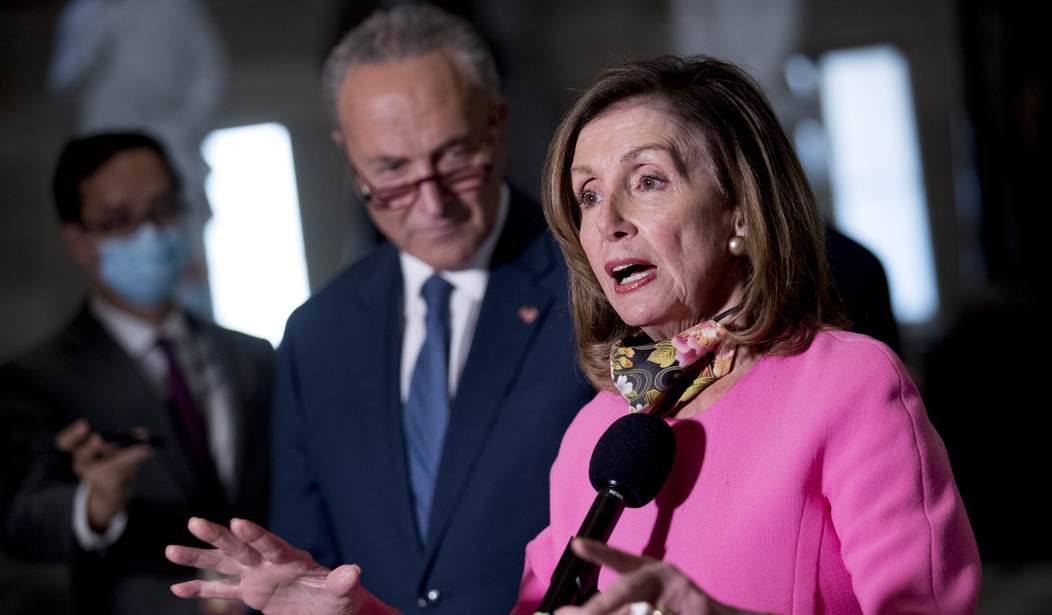Democrats have a problem with rules. For all their recent rhetoric about precedents and norms, when the rules don’t work for them, they don’t hesitate to change them when they have the power to do so. Democrats used the filibuster in unprecedented fashion to block President George W. Bush’s judicial nominees, claiming they were just exercising the sacred rights of the minority party in the Senate. But, once the GOP responded in kind under Obama, then-Senate Majority Leader Harry Reid infamously nuked the filibuster, minority party rights be damned.
When the Democrats lost the Senate in 2014, they, through no fault but their own, found themselves powerless as the minority party. Of course, Barack Obama had already been bypassing Congress, legislating via executive action, parts of his agenda that he was unwilling to compromise on in order to get it passed in the Republican-controlled House of Representatives. Barack Obama destroyed precedent and turned executive orders into a means of bypassing Congress and checks and balances, under the justification that his agenda was simply too important to be bogged down or blocked by the process laid out by the Constitution.
But rules and norms aren’t just broken by Democrats, sometimes, they’re made up out of thin air. After President Trump nominated Brett Kavanaugh to the Supreme Court, the Democrats on the Senate Judiciary Committee claimed that Trump had no right to fill that seat because of the then-ongoing Mueller investigation. “Given the possibility of criminal wrongdoing by the president […] we should not move forward with hearings,” they claimed.
It was a brand new concept they proposed that, once you get past the fact that the investigation into Russian collusion, was a total sham and based on no evidence, had no basis in the Constitution. Further, it ignored the fact that President Bill Clinton was under criminal investigation at the time he nominated Ruth Bader Ginsburg to the Supreme Court. How many Democrats would argue that her tenure on the court was illegitimate because the president who nominated her was the subject of a criminal investigation at the time? I’m asking for a friend.
With the death of Ruth Bader Ginsburg last week, there is literally no excuse off the table. According to the Democrats, Trump can’t nominate so close to the election, or any time during an election year. In response to Trump’s promise to nominate a successor to Ginsburg, Democrats have threatened to use any tactic they can to prevent it from happening or to retaliate if Trump and the Republicans succeed. “We have our options,” House Speaker Nancy Pelosi told George Stephanopoulos earlier this week when asked if Democrats might use impeachment as a means to block the nomination. “We have arrows in our quiver that I’m not about to discuss right now.”
And then there’s Senate Minority Leader Chuck Schumer, who argued on the floor of the Senate that the vacancy shouldn’t be filled because Ruth Bader Ginsburg’s alleged dying wish was for someone besides Trump to fill the vacancy left by her death. “We will honor her this week. And by all rights, we should honor her dying wish, imparted to her granddaughter, that she ‘not be replaced until the next president is installed,’” Schumer said. “All the words and encomia for Justice Ginsburg from the other side ring hollow if they won’t honor her last dying wish.”
I’m sorry, can anyone show me where in the United States Constitution it says that a Supreme Court Justice has any say in the matter of what happens to the seat he or she held? If they did, does anyone believe that Justice Antonin Scalia would have approved of Barack Obama’s choice of Judge Merrick Garland to fill the vacancy left by his death? Despite the media portraying Garland as a centrist, he was, in fact, a liberal judge who, the New York Times noted, “could tip the ideological balance to create the most liberal Supreme Court in 50 years.”
But, it didn’t matter what Justice Scalia may have thought about his successor on the court. Nor does it matter what Justice Ginsburg’s “dying wish” was. The choice of whom to nominate belongs to the president of the United States, and the choice of whether to confirm that nominee or not belongs to the Senate. No other caveats exist.
None.
For our Republic to survive, we have to be able to count on our leaders to live by the rules they’ve set for themselves, even when they aren’t convenient. If rules are constantly changing every time we see the party in charge change, then there will be chaos. An endless cycle of escalation would be a disaster, and it has to stop now.
_____
Matt Margolis is the author of Airborne: How The Liberal Media Weaponized The Coronavirus Against Donald Trump and the bestselling book The Worst President in History: The Legacy of Barack Obama. You can follow Matt on Twitter @MattMargolis










